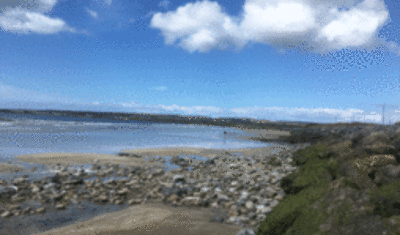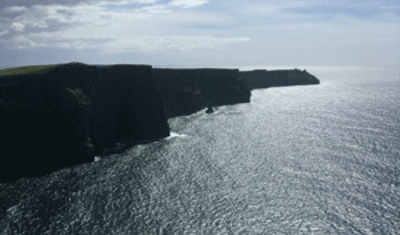06/06/18
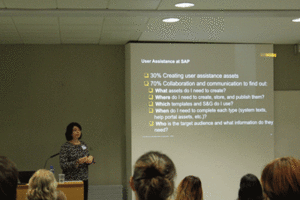
European Academic Colloquium 2018 21st Century Skills for Technical Communication
Julia Müller
The sixth European Academic Colloquium (EAC) took place on April 26-27 at the University of Limerick in Ireland. For the third time, the Colloquium was integrated into the Erasmus+ project TecCOMFrame.
On the first day of the event, about 50 scholars and practitioners came together to discuss this year’s topic, 21st century skills for technical communication. During several presentation slots, professionals from the industry and academia presented their research projects.
The morning session started with an interesting keynote on “Adapting to the Future of Technical Communication” by Rachael Hewetson (SAP, Ireland). This was a good starting point for the day as she showed the industry’s perspective on what skills technical communicators need in the 21st century. The keynote was followed by a presentation by Dr. Kirk St. Amant (Louisiana Tech University, USA) about cognitive design skills and how to create materials to meet the needs of the 21st century. Afterwards, Professor Sissi Closs (University of Applied Sciences Karlsruhe, Germany) and Dr. Jan Engberg (University of Aarhus, Denmark), who are both part of the TecCOMFrame project consortium, gave a presentation on “Flexible Information Models Based on Knowledge Frames and Topic-Based Structuring”. Another speaker in the morning session was Christiane Zehrer from Germany, who reported on how to acquire knowledge from subject matter experts with the project compass method. In the last presentation for the morning session, Parthena Charalampidou from the Aristotle University of Thessaloniki (Greece) talked about key competences for website localizers.
After a lunch break, the TecCOMFrame project group presented its project outcomes. Starting with the aims of the project and an overview of the Academic Competence Framework, the methodology of the group and some examples of the prototype curricula they have developed during the last year were presented. The audience showed a lot of interest in the project as the presentation was followed by a good discussion and valuable feedback. Afterwards, four PhD students from the University of Limerick reported on the current status of their PhD projects. Following all presentations, there was time for questions and answers, and it was nice to see that the audience asked a lot of questions after each presentation and that some good discussions were going on.
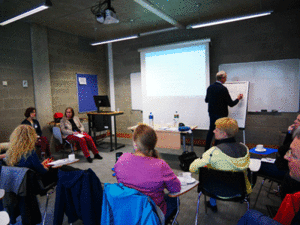
On the second day of the event, the International HEI Teacher Meeting took place. It was organized as an open space where all participants could bring in their own topics and discuss best practices, the potential for joint projects, and future collaborations between their institutions. First, the whole group brainstormed to come up with topics they wanted to discuss. Afterwards, people were split into three different groups and had about an hour to discuss their topics and present the results to the audience. The first group worked on the problem that many higher education institutions in Europe don’t find enough students for their program. Therefore, they discussed the question “How do people learn about TC?” Different channels for how young people inform themselves were discussed, as well as possible keywords they might be searching under. The idea they came up with was to develop a survey to find out how different target groups, such as pupils or students, learn about TC. A survey by tekom coming soon will implement this idea. The survey can function as a basis for improving marketing for the profession to attract more students.
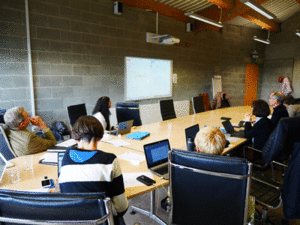
The second group talked about research networks and internationalization. A good idea that came up in this group work was to establish a network on the TecCOMFrame website where teachers can connect and exchange with others. This could be some kind of database where teachers and researchers can register and look for people with the same interests.
The third group talked about possibilities for collaborations between universities. Two HEI teachers who have already established a collaboration via Erasmus+ to exchange with students explained how they did it and what others should consider if they want to do the same. In this context, the possibility of an extended master or a double degree between two different institutions was discussed as well.
After the successful group work and discussions in the morning session, a bus was waiting for the group to take them to the Cliffs of Moher. The weather was beautiful, so the group had time to further exchange and deepen the discussions from the morning session while walking along the Cliffs of Moher and enjoying a stunning view from the cliffs.

